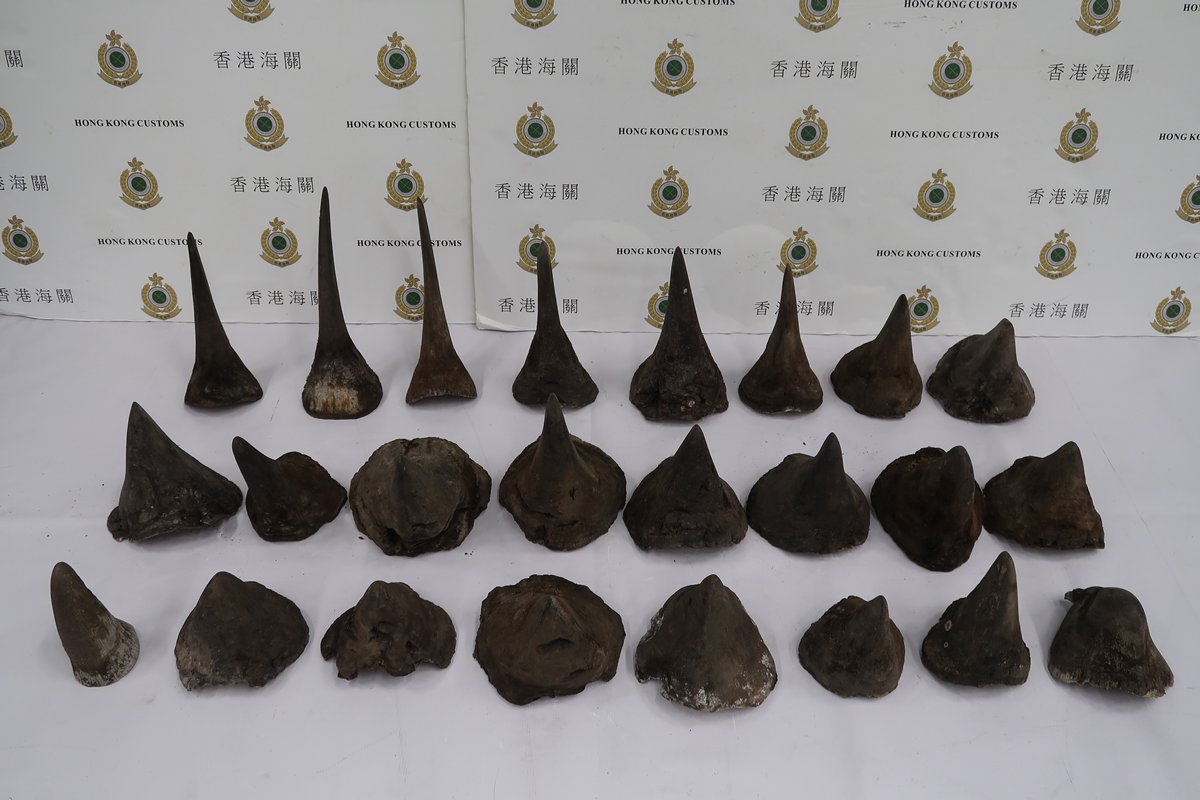Customs officials at Hong Kong International Airport yesterday arrested two men in connection with a record seizure of 40 kilograms of rhino horns, the latest in example of the city’s outsized role in the illegal wildlife trade.
According to a government press release, the horns were found in cardboard boxes checked in by the two men, aged 28 and 33, who were traveling from Johannesburg, South Africa, and bound for Ho Chi Minh City, in Vietnam.
The announcement noted that the seizure was the largest ever intercepted from an arriving passenger at the airport.
Calling the seizure “shocking,” the conservation group WildAid noted today that 40 kilos is roughly equivalent to 20 percent of all the rhino horn seized in a five year period starting in 2013.
“Hong Kong, as a transit point, has a key role to play in smashing the crime network,” it said.
The bust comes hot on the heels of a series of other major seizures, including a similarly record-breaking haul of pangolin scales — some 8.3 metric tons — at the beginning of the month. In the same bust, officials also seized hundreds of elephant tusks weighing some 2,100 kilograms.
Rhino horns and pangolin scales are valued in Chinese traditional medicine for their purported health benefits. According to the anti-wildlife crime NGO Traffic, rhino horn has been marketed aggressively — and without evidence — in Vietnam as a cure for cancer in recent years, and has long been held to cure several other ailments.
“Rhino horn is also reportedly used in Viet Nam to treat people who suffer from epilepsy, high blood pressure, allergy, measles, stroke, long-term sleeping disorder or who have ‘fallen down from a height,’” according to a report by the group.
Both rhino horn and pangolin scales are almost entirely made of keratin, the same substance that forms hair and fingernails. Still, the trade in these products has resulted in precipitous declines in both species.
Conservationists, meanwhile, are increasingly faulting Hong Kong for doing too little to combat its role as a major transit hub for the trade in illegal wildlife products.
A major report last month by the Hong Kong Wildlife Trade Working Group said that that “not only is the trade in legal and illegal wildlife at a significant and unsustainable scale, it is likely to get worse”, and that as a major hub in the wildlife product trade, Hong Kong “should and could do more to disrupt the associated criminal activity.”
While Hong Kong upped penalties for wildlife smuggling last year, the report’s authors say sentences are still too lenient, and that wildlife crime should be included under the Organised and Serious Crime Ordinance.
If convicted, the men arrested in yesterday’s bust could face maximum fine of HK$10 million (about US$1.27 million) and a 10-year prison sentence.





Reader Interactions